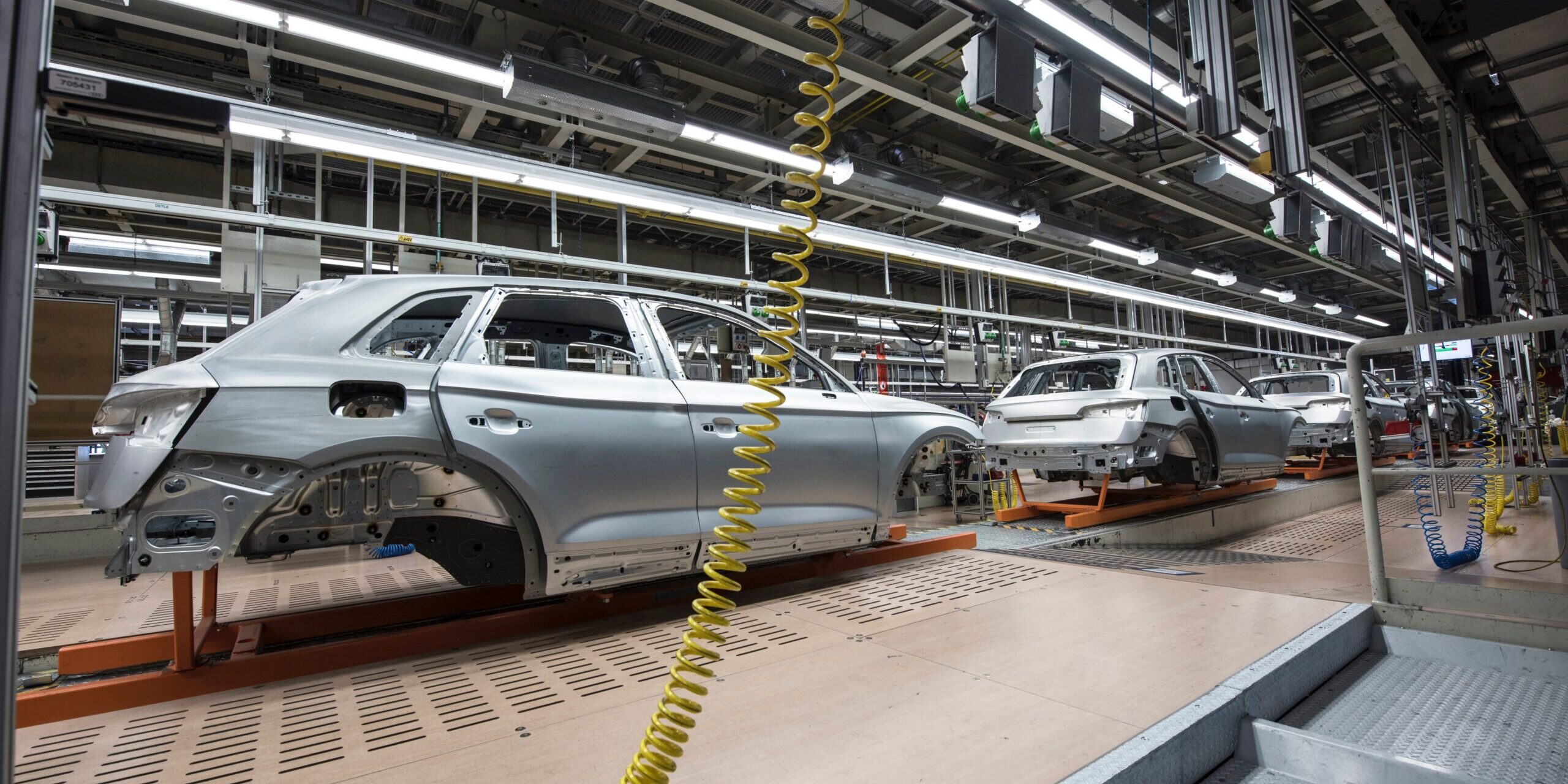According to the results of Xometry’s 2024 Automotive Manufacturing Industry Survey, a notable 68% of leading automotive professionals express optimism about their company’s growth prospects in the coming year. As the industry faces various challenges, including labor shortages, the need to scale up electric vehicle (EV) production, the rise of autonomous vehicles, and the complexities of international supply chains, a closer look at the top supply chain trends for 2024 reveals several noteworthy developments.
- Improved Compensation for Workers The automotive sector grappled with the historic 2023 United Auto Workers (UAW) strike, highlighting issues such as stagnant wages and benefits for new employees. The ongoing worker dissatisfaction, coupled with the demand for skilled technical workers, has created challenges for attracting and retaining talent. A significant 67% of surveyed automotive manufacturers plan to increase worker wages in the next year to address high attrition rates.
- A Surge in Reshoring Reshoring efforts are on the rise, with 44% of survey respondents indicating a strong likelihood of onboarding new North American suppliers for products, raw materials, and services in 2024. Factors driving this trend include supply chain fulfillment, government incentives, access to high-quality American-made products, reduced shipping costs, and improved supplier responsiveness. However, higher costs remain a concern, along with skilled labor shortages and component availability.
- Enhanced Supply Chain Transparency While many automotive professionals are satisfied with their supply chain transparency, there is a drive for continuous improvement, particularly among the 29% who view their supply chain transparency as subpar. In 2024, the industry will witness increased efforts to enhance supply chain visibility through software enhancements, blockchain technology adoption, and improved supplier relationship management (SRM) strategies.
- Continued Investment in Electric Vehicles (EVs) Investments in EV manufacturing will persist, driven by customer demand, government incentives, and cost-effectiveness. Despite challenges in meeting the Biden Administration’s 2024 EV goals, industry leaders remain optimistic. Key obstacles include battery innovation, charger compatibility, and the need for electrical infrastructure improvements.
- Focus on Sustainability The automotive sector faces mounting pressure to adopt sustainable practices, both in manufacturing operations and vehicle production. Over the next year, companies will revamp their operations to create more sustainable vehicles, impacting the sourcing of materials, components, and logistics processes.
- Embracing Artificial Intelligence (AI) While public confidence, regulatory complexities, and evolving technology have slowed AI adoption in enhancing the driving experience, AI is gaining traction within the automotive supply chain. A significant 76% of companies are deploying AI in supply chain management, and 71% are utilizing AI in procurement. Many respondents report immediate returns on investment from AI deployment. AI investments are poised to increase in 2024, bringing benefits such as innovation, cost reduction, enhanced safety, predictive maintenance, and expanded supplier networks.
In conclusion, the 2024 automotive supply chain landscape is marked by optimism and a proactive approach to address industry challenges. As the sector navigates labor issues, reshoring endeavors, sustainability goals, and the embrace of AI, the automotive industry is poised for continued growth and transformation in the coming year.







